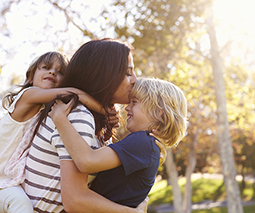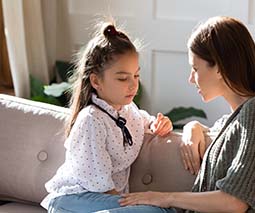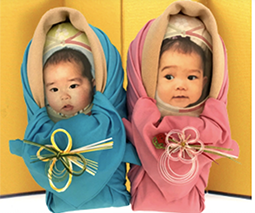I don’t want to be called Mum today (and it’s a hard thing to admit)

I’m a mother. It’s my job. And some days, I don’t like my job. I’m guessing you have your off days too. Let’s all be okay with this.
Please don’t call me Mum today
The other day I hit my limit. My two young children had been following me around all afternoon, calling out an endless chorus of “Muuuuuuuuuuuuuum.”
So I turned on them. “Call me Lisa,” I told them. “Don’t call me Mum today. Just call me Lisa.”
They both stared at me blankly.
“Who’s Lisa?” asked my two-year-old.
Good question.
Once you have a child, people really like you to be one thing, and one thing only: Mum. It’s a nice, soft, simple word. A perfect palindrome. A reflection of itself. And yet before the children, you were many things. You flitted through your twenties, trying on different jobs and partners. You built stuff and did stuff, and (most of the time) you felt like you were running right alongside the boys.
And then all the conversations seem to change with your first child. I noticed it straight away. I would go to parties, and while the men were talking about interesting things like work or wine or whatever, the women would want to know one thing. Do you have kids?
This always felt like a very very important question. And my answer (yes, tense smile) was an instant social signifier of my place in the world, and the work that I do. Not my career … the other job: looking after two little human beings, and all the immeasurable labour that comes with that.
Inevitably, we would then bond over small mum-stuff, like the lack of sleep, the school run, our busy busy business. Meanwhile, I would look at my husband and feel a bit envious. No one was asking him if he was a dad. No one cared. They had better things to talk about.

Not always loving it
Now, I generally try to rush through the mum-question and get to something more interesting. I’m also aware of how painful that question must be to the many women who can’t, or choose not to, have children. It must feel insufferably nosey.
The other reason I hurry through that question is because I don’t always want to talk about my kids. Which people still get a bit weird about. I can see they’re uncomfortable with the idea that a mother might not totally love motherhood.
This wasn’t something I knew, until I was in it. I remember being at playgroup with my six-month-old and admitting to a few women that I was bored and lonely at home. My child had hit a sleep regression, I didn’t have a car to get out and about, and I had no family around, so there was zero chance for a break. The women were nice about it, but the conversation moved on quickly to happier things, and I made a mental note, right then, not to be such a downer.
I wish I could go back to that moment and put an arm around the tired, lonely, bored mother that I was. Why did I think I had to be happy and content? Who was telling me that? I’m pretty sure I spent the first three decades of my life being told I could be anything I wanted to be. My parents told me that, so did my teachers and my friends, and all those movies about perky girls saving the world. I spent many years of my life doing exactly that: being what I wanted to be. How could I drop all that and suddenly just be Mum?
We expect too much. Yes, many of us have fabulous helpful partners who share the load. But I look around, and I see that women are still doing the lion’s share. We do the work, because we love our children. But we don’t always love the work, and we don’t have to. Actually, as another mother whispered to me at a kid’s birthday, “this mother-thing is 95 percent sh*t”. But she whispered it. Because saying stuff like that is still dangerous.
A new word
Mum is a powerful word. But it’s like a heavy crown. It’s too symbolic, too weighed down with toil and duty. It’s not fun. There’s no sparkle. And it gets really annoying when repeated over and over by toddlers.
For now, I occasionally remind my children to call me by my real name: Lisa.
They know who she is now.









